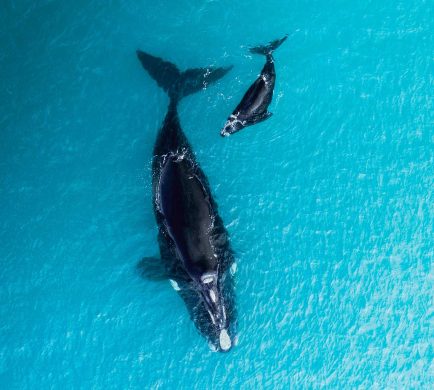Ways to Protect Planet Earth
We live in a cocoon on a planet that is unique in the universe, providing an environment that has produced our particular form of life. So far, we have found no planet exactly like ours, anywhere in our universe, providing this environment that has allowed our particular form of life to develop and survive.
Earth has a rotating molten iron core, which produces an electromagnetic shield that surrounds it. That magnetic shield protects us from the searing radiation blasts of a constant massive nuclear bomb going off 93 million miles away. It’s just the right strength to keep us from being reduced to ashes from that nuclear blast while at the same time allowing enough energy to filter through it to sustain life. Our planet is just the right distance away from that constant nuclear bomb, protected by our electromagnetic shield of just the right strength so that we can maintain a thick blanket of atmosphere around our planet, allowing us to breathe the oxygen it contains. We need that oxygen to produce energy with our own internal combustion processes and develop it in the form we have assumed. Our planet is just the right distance away from that constant nuclear blast, protected by our shield, to have water, which is necessary for all life.
But look at where we are right now. We are a gasoline-dependent civilization. Every gallon of gasoline weighs six pounds. Ninety percent of that gallon is carbon, all used in the combustion process. Since an oxygen molecule weighs 1.33 times as much as a carbon molecule, every five pounds of carbon in a gallon of gasoline is combined with fourteen pounds of oxygen to produce nineteen pounds of carbon dioxide.
Now consider this: the average vehicle in the U.S. gets 22 miles per gallon and travels 11,000 miles during the year. That means each of us is putting about 10,000 pounds of carbon dioxide into the atmosphere of our planet each year. Now add in heating and cooling our homes and workplaces, lawnmowers, and leaf blowers. Each of us is pumping metric tons of carbon dioxide into our atmosphere every year.
Meanwhile, our forests — those factories that absorb our carbon dioxide and produce oxygen for us to breathe, are being slashed, burned, deforested, and eliminated. Large sections of our great lakes are now filled with toxic algae blooms, poisonous to humans. In some communities our children have high lead levels in their brains, dragging down their intelligence and ability to cope for their entire lives. Harsh chemicals discharged from our mines and manufacturing plants are causing large fish kills in our rivers. The largest predator fish in our oceans carry high levels of mercury and other toxic heavy metals. Our oceans, the major source of our oxygen supply, have become massive garbage dumps for plastic trash.
Further, we are still working from such basic instincts, as human animals, that many of our actions are based on fear and greed — which becomes expressed as violence. We take what we want, and to justify this internecine, antisocial warfare, we use differences in appearance, customs, color, and ancestry to commit ethnic cleansing and genocide. We also use our religions as convenient scapegoats to commit violence against other humans.
When all this pollution is added together on our only home, it’s not a pretty picture. If we do not change our ways quickly, our planet will rapidly become polluted and consumed to the point it will no longer sustain us easily. At this rate, our species will soon struggle to survive or cease to exist.
The folly of switching planets
There are many who say all this pollution and destruction of our resources is okay and that when (not if) this planet becomes unlivable, we can simply establish human colonies on another life-sustaining planet or moon. My immediate thought is that they’re insane, but I know there’s more to it: they’re simply ignorant of the facts of life. There’s only one home where our particular life form can survive in any great number: Earth.
It may be nearly certain that other places in the universe have life, but they also certainly have different energy sources, substrates, and probably other forms of water. The life they sustain will be totally different from ours; their habitat will be inhospitable for humans. None will offer the same circumstances that we have on planet Earth. We can’t live there, and we can’t get there.
What we can each do
As an individual, I can’t force other people to be kind to all other life, give up religious mythologies as an excuse to kill, love their neighbors all over the world, or use their resources wisely. But I can do two things. I can express myself by writing letters and Op-Eds and writing books on morals, ethics, and religions — with the hope that they will provide some guidance for readers on better managing their own lives. I have written our governor, senators, and congressman, pleading with them to pass reasonable gun control laws, barring assault weapons for public use.
I can also conserve planet resources as much as possible and pollute as little as possible. I’ve planted over 100 trees and bushes in my yard, surrounding me with other life, furnishing oxygen, and absorbing carbon dioxide. In our house, we wash, dry, recycle, and reuse all saran wrap and plastic bags 100 times or more, and when they are no longer useable to preserve food, they go in the recycling bin. We’re diligent about organizing our recycling.
We save energy by using double-pane windows with storm covers. We have a 30-panel solar system on the roof, which sends electricity down to a converter in the basement — the power generated means our electric meter goes forward or backward, depending on our needs and the grid’s needs. We have geothermal heating and cooling attached to 750 feet of buried pipe in the backyard that circulates water with methanol, taking cool from the ground in the summer and warmth in the winter. We use an attic fan to cool the house efficiently, rather than using the geothermal unit on moderate days. We have a 240-volt line to charge a plug-in hybrid car, usually twice a week for two hours. Over the last six years that same car has averaged 134 mpg.
Considering the initial cost of all those items, as opposed to the several hundred dollars in utility bills saved per month, there is probably no financial advantage to their presence, but there is a huge environmental advantage. I have children, and my children are now having children. I want the children of my children and your children to have a home — the only home they will ever have — planet Earth. I want to do everything I can to ensure it’s a decent place to live, not a trash heap where they have to scavenge to survive. Imagine what would happen if everyone got to make those changes — and instead of fantasizing about colonizing a faraway planet, we all got to work on our own.
Carl G. Schowengerdt is a retired surgeon who grew up in a family of daily religious and ethical discussions.
His father was a Methodist minister, and his brother was a Methodist bishop. Schowengerdt instead studied medicine, became a physician, and practiced surgery for 40 years, specializing in lung and esophageal cancer and family practice.
He chaired the Ethics Committee for Genesis Health Systems, was medical director of the Genesis/James cancer unit and Rambo Memorial Respiratory Health Clinic of Muskingum County, and was president of the nonprofit Appalachian Primary Care. His new book is Human Ethics.







